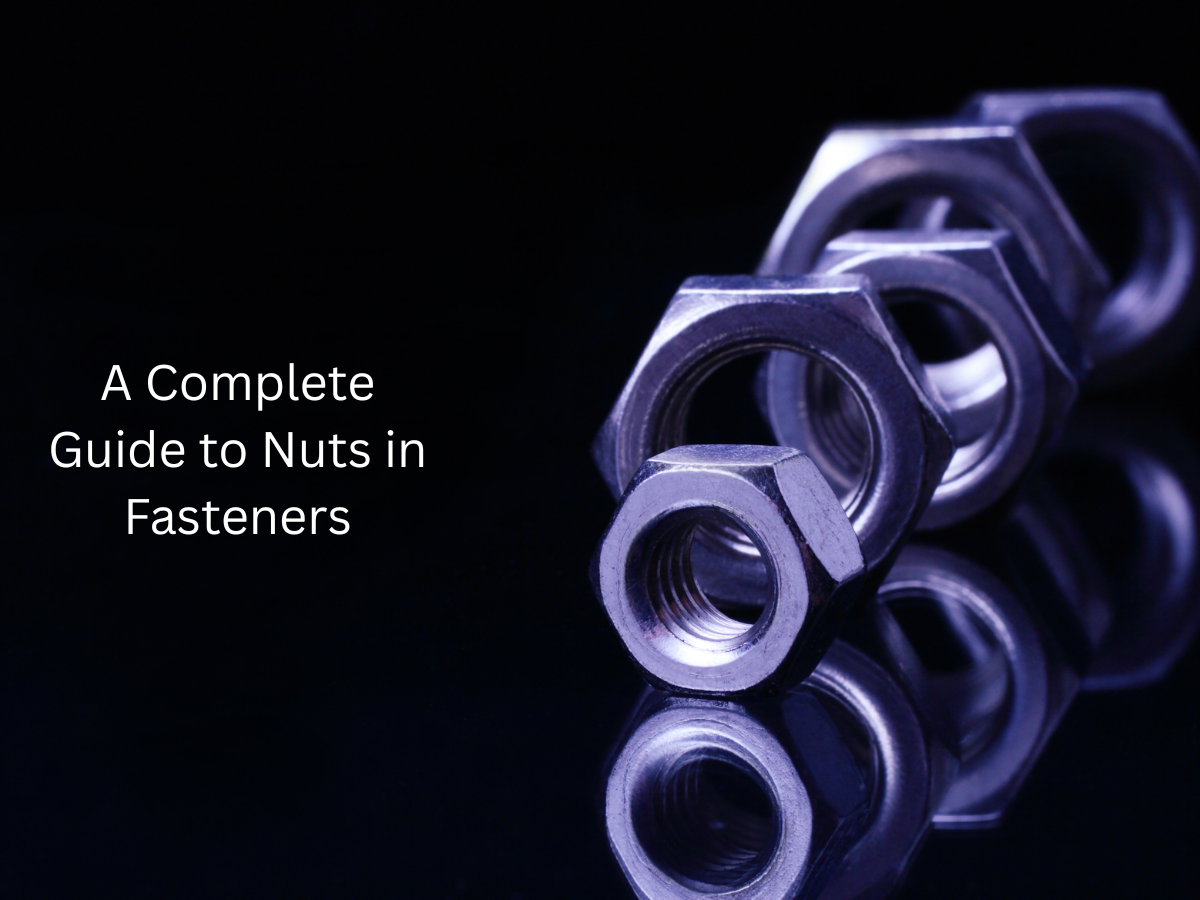When it comes to mechanical fastening, nuts play an essential role in securing components together in a wide variety of industries — from construction
When it comes to mechanical fastening, nuts play an essential role in securing components together in a wide variety of industries — from construction and automotive to aerospace and heavy engineering. While small in size, these components offer big functionality, ensuring structural stability, ease of disassembly, and long-term reliability.
In this post, we’ll explore the different types of nuts, their uses, and how to choose the right one for your application.
What Are Nuts in Fastening?
Nuts are internally threaded fasteners that pair with bolts, screws, or studs to hold parts together. Together with their counterpart fastener, they form a joint by applying pressure and friction, which can be easily tightened or removed.
Common Types of Nuts and Their Applications
-
Hex Nuts
-
Description: The most widely used type, featuring six sides.
-
Application: General-purpose fastening in construction, machinery, and automotive.
-
-
Lock Nuts
-
Description: Designed to resist loosening under vibration or torque.
-
Types: Nylon insert lock nuts, all-metal lock nuts.
-
Application: Engines, rotating machinery, aerospace components.
-
-
Flange Nuts
-
Description: Built-in washer that distributes pressure evenly.
-
Application: Automotive, pipework, and equipment assembly.
-
-
Wing Nuts
-
Description: Features “wings” for manual tightening without tools.
-
Application: Temporary assemblies or fixtures where frequent removal is needed.
-
-
Cap Nuts (Acorn Nuts)
-
Description: Domed top for safety and aesthetics.
-
Application: Decorative assemblies, playground equipment, exposed joints.
-
-
Square Nuts
-
Description: Four-sided nuts for more grip with tools.
-
Application: Furniture, electrical panels, heavy equipment.
-
-
T-Nuts
-
Description: Designed to be installed into wood or soft materials.
-
Application: Woodworking, metal framing systems.
-
Materials Used in Nut Manufacturing
-
Carbon Steel (zinc plated or galvanized)
-
Stainless Steel (for corrosion resistance)
-
Brass (non-sparking, decorative use)
-
Alloy Steel (high strength applications)
-
Nylon (for lightweight, low-stress applications)
Key Considerations When Choosing Nuts
-
Thread size & pitch
-
Material compatibility with bolts and the environment
-
Load-bearing requirements
-
Corrosion resistance
-
Vibration exposure
-
Ease of installation and removal
Industry Applications of Nuts
-
Automotive: For engines, chassis, brake systems.
-
Construction: Structural steel connections, scaffolding.
-
Oil & Gas: High-strength, corrosion-resistant nuts for offshore rigs.
-
Electrical: Secure cable trays and switchboards.
-
Manufacturing: Assembly lines, conveyors, machinery.
Final Thoughts
While they may seem simple, nuts are crucial for mechanical integrity and safety. Selecting the correct type of nut can enhance performance, extend lifespan, and reduce maintenance costs in your application.
Whether you’re sourcing for a heavy-duty industrial setup or need precision parts for machinery, understanding the role and types of nuts will help you make smarter, safer choices.

COMMENTS